Important Dates
Notification of Acceptance –
Camera-Ready papers Submission –
Conference Date -March 6th -7th, 2023
Submission
Researchers and PHD students on electronics and communication systems, are invited to submit a paper (typically 4-6 pages in standard IEEE two-column format) …
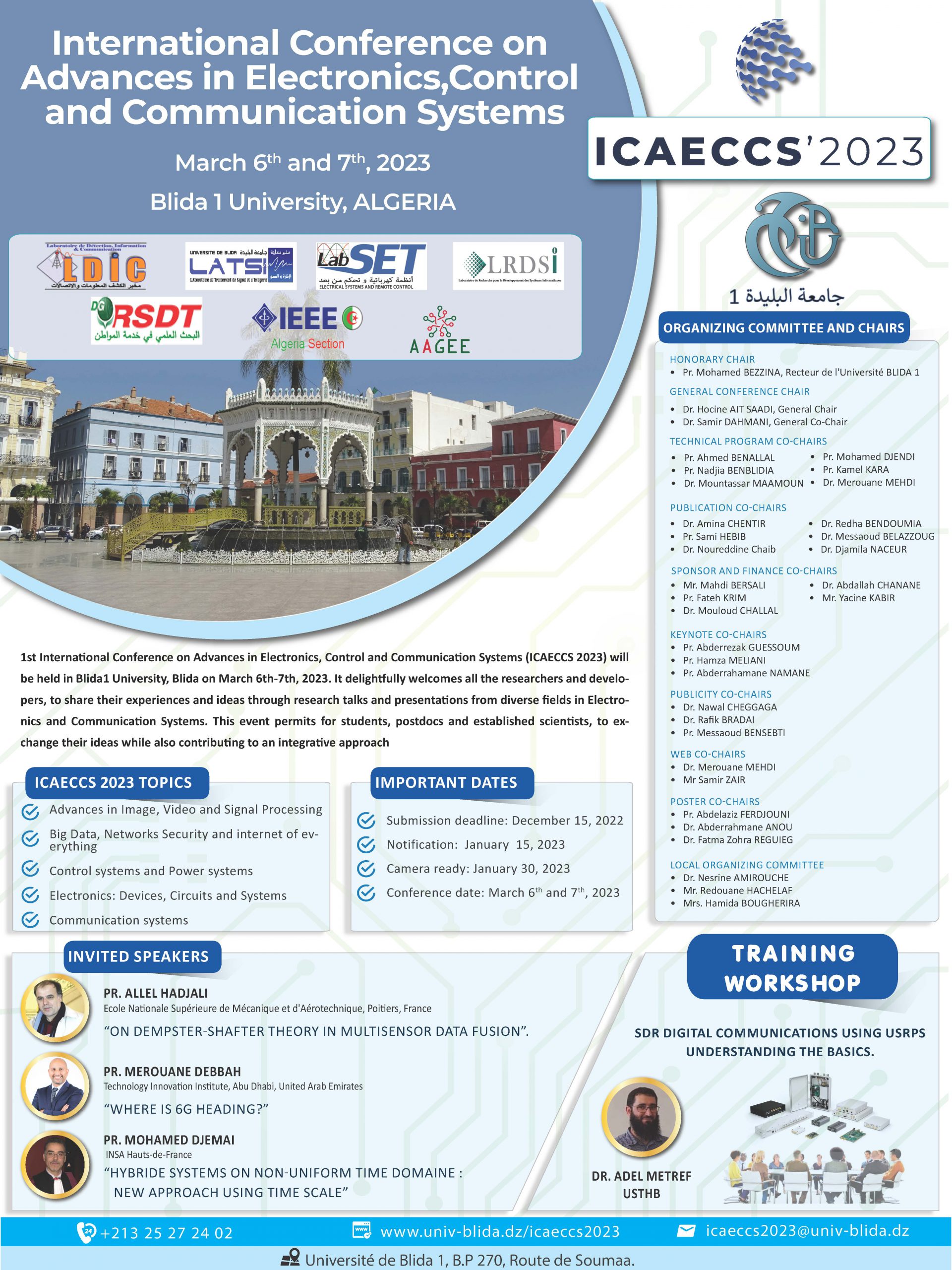
International Conference on Advances in Electronics, Control and Communication Systems (ICAECCS2023)
2023 1st International Conference on Advances in Electronics, Control and Communication Systems (ICAECCS 2023) will be held in Blida1 University, Blida on March 6th-7th, 2023.
It delightfully welcomes all the researchers and developers, to share their experiences and ideas through research talks and presentations from diverse fields in Electronics and Communication Systems. This event permits for students, postdocs and established scientists, to exchange their ideas while also contributing to an integrative approach.
Author Guide Line
Researchers and PHD students on electronics and communication systems, are invited to submit a paper (typically 4-6 pages in standard IEEE two-column format) . The paper should contain a complete description of the proposed contribution along with results, suitably framed in the related state of the art.
Word template (MS Word .doc format)
IEEE Copyright form (doc)
Important Dates
Papers Submission deadline –October 30th, 2022, December 20th, 2022
Notification of Acceptance –November 30th, 2022, January 20th, 2023
Camera-Ready papers Submission –December 15th, 2022, February 5th, 2023
Conference Date -March 6th -7th, 2023
The ICAECCS 2023 sessions et posters
Track1: Advances in Image, Vidéo and Signal Processing
Track2: Communication: Circuits, systems and Applications
Track3: Electronics: Devices, Circuits and Systems
Track4: Control and Power Systems
Track5: Big Data, Networks Security and Internet of Machines
Paper Submission
Manuscript should be submitted via online submission system at https://easychair.org/
Format « English is the language of the conference » :
Papers should be written according to IEEE standard.
Papers should not exceed 6 pages.
Only PDF files will be accepted. A maximum file size of 2MB for all uploaded papers will only be accepted.
ICAECCS/COVID-19 UPDATE
The safety and well-being of all conference participants is our priority.
The Conference organizers are monitoring the situation of the COVID-19 pandemics to ensure the safety of all Conference participants.
The Conference venue has wide spaces for the Conference sessions and activities, which make it easy to respect the interpersonal distance constraints. Health and safety measures will be implemented at the Blida 1 University Conference venue. In case of travel restrictions or further limitations, participation to the sessions in virtual (online) mode will be guaranteed for the communicants.
Paper Submission
Papers should be submitted online to: https://easychair.org/conferences/?conf=icaeccs2023
Format « English is the language of the conference » :
Papers should be written according to IEEE standard.
Papers should not exceed 6 pages.
Only PDF files will be accepted. A maximum file size of 2MB for all uploaded papers will only be accepted.
Paper Templates and Forms
Word template (MS Word .doc format)
IEEE Copyright form (doc)
Conference Proceedings
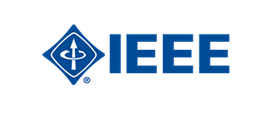
Submitted papers will be sent to around 2-3 reviewers for peer review. Accepted papers will be submitted for inclusion into IEEE Xplore subject to meeting IEEE Xplore’s scope and quality requirements. Welcome you to submit the paper.
Speakers
Meet Our Speakers
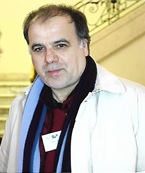
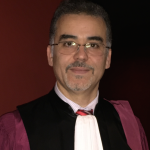

Training Workshop
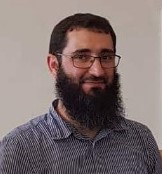
Dr. Adel Metref
SDR Digital Communications : understanding the basics
Détails
- Pr. ALLEL HADJALI, Ecole Nationale Supérieure de Mécanique et d’Aérotechnique, Poitiers, France, “ON DEMPSTER-SHAFER THEORY IN MULTISENSOR DATA FUSION”.
- Pr. MEROUANE DEBBAH, Technology Innovation Institute, Abu Dhabi, United Arab Emirates, “WHERE IS 6G HEADING?”
- Pr. MOHAMED DJEMAI, INSA Hauts-de-France, “HYBRIDE SYSTEMS ON NON-UNIFORM TIME DOMAINE : NEW APPROACH USING TIME SCALE”.
Final Submission
- The final version of accepted papers must be prepared according to the IEEE Xplore formatting procedure.
- Any accepted paper submitted without using this procedure will not be included in IEEE-Xplore.
- You also need to add 1 line, only in the footnote of the first page, to your final (camera ready) version of your paper the IEEE copyright notice :
978-1-6654-6310-2/23/$31.00 ©2023 IEEE
- For papers in which all authors are employed by the US government, the copyright notice is : U.S.Government work not protected by U.S. copyright
- For papers in which all authors are employed by a Crown government (UK, Canada, and Australia), the copyright notice is: 978-1-6654-6310-2/23/$31.00 ©2023 Crown
- For papers in which all authors are employed by the European Union, the copyright notice is: 978-1-6654-6310-2/23/$31.00 ©2023 European Union
Guidelines for submission
Submissions must follow IEEE PDF eXpress requirements.
- Before Creating a PDF : Proofread your source document thoroughly to confirm that it will require no revision.
- Creating your PDF eXpress Account : Log in to the IEEE PDF eXpress™ site
- First-time users should do the following steps :
- Select the New Users – Click Here
- Enter the following: 56710Xfor the Conference ID and your email address as password.
- Continue to enter information as prompted.
- An Online confirmation will be displayed and an email confirmation will be sent verifying your account setup.
- Previous users of PDF eXpress need to follow the above steps, but should enter the same password that was used for previous conferences. Verify that your contact information is valid.
- Enter account information and submit.
- Click “Continue” followed by “Create new title” for checking and converting the file.
- It is better to submit a MS Word file, so PDF Express will directly convert it to the right format.
- Browse and upload the file.
- Finally, click on the Paper Title to view the PDF.
Note:
Keep the PDF name, as per the name given by the pdf-express website and submit the paper on your previous account on web site :
https://easychair.org/conferences/?conf=icaeccs2023
and also send it to: icaeccs23.final.submission@gmail.com
- Generally, the PDF file name will be a large number. (don’t change the name of the file otherwise IEEE Xplore will not find it)
- Please send the files before the deadline: 5 February 2023.
- Any paper that is over 6 pages is charged 50 USD/page up to a maximum of two extra pages.
IEEE Copyright form (doc) must also be uploaded on the https://easychair.org/conferences/?conf=icaeccs2023 web site and sent it to : icaeccs23.final.submission@gmail.com
Titre : Hybride systems on non-uniform time domaine : new approach using Time scale
Allel HADJALI
Professor in Computer Science
E-mail: allel.hadjali@ensma.fr
Title: On Dempster-Shafter Theory in Multisensor Data Fusion
Short Description: Multisensor data fusion is the process of combining observations from a number of different sensors to provide a robust and complete description of an environment or process of interest. Multisensor data fusion finds wide application in many areas, such as Robotics (object recognition, environment mapping, and localization), Satellite and aerial imaging, Medical imaging, Sonar and radar and imaging for aerospace applications, IoT platforms and Artificial Intelligence. As sensors are most often used under conditions that induce difficulties at different levels (- measurements may be imprecise, erroneous, incomplete, or ill suited to the problem – prior knowledge be incomplete, poorly defined, and may not fit any more with the reality encountered, especially when the context is evolving – observations may be ambiguous, either in space or in time), it is therefore necessary to define formalisms that are sufficiently general to represent and combine all types of information that may be encountered. In this talk, we present the foundations of Dempster-Shafer theory (named also belief functions or evidence theory) for the data fusion purpose. It represents a general formalism in the sense that (i) it allows modeling both uncertainty and imprecision; (ii) it is a generalization of both probabilistic and possibilistic models. We discuss the different evidential combination rules both from the semantic and computational sides. The important issues related to managing the level of conflict of the sources and to scalability are addressed as well.
Keywords: Data fusion, Multisensor data, Dempster-Shafer theory, Belief functions, Uncertainty, Ambiguity, Combination rules, Degree of conflict, Decision making.
Short Bio: Allel HADJALI is Full Professor in Computer Science at the National Engineering School for Mechanics and Aerotechnics (ISAE-ENSMA), Poitiers, France. He is a member of the Data & Model Engineering research team of the Laboratory of Computer Science and Automatic Control for Systems (LIAS/ISEA-ENSMA). His main area of research falls within Data Science field, and more specifically, the research topics related to Data Exploitation & Analysis (sensor data, semantic data, incomplete data), Knowledge Extraction and Recommendation. His current research interests include Soft Computing and Computational Intelligence in Databases (Cooperative/Intelligent Databases, Data fusion/integration, Data quality, Data Uncertainty, Data Privacy and Trust), Machine Learning-based Recommendation, Approximate/Uncertain Reasoning with applications to Artificial Intelligence and Information Systems. His recent works were published in well-known journals (e.g., Applied Soft Computing, Knowledge and Information Systems, Fuzzy Sets and Systems, International Journal of Intelligent Systems, Journal of Intelligent Information Systems and Annals of Mathematics and Artificial Intelligence). He also published several papers in International Conferences (ESWC, ICTAI, Fuzz-IEEE, DEXA, FQAS, SUM, ISMIS, IPMU, CoopIS, IFSA, ACM SAC, ICWS, SCC, ER, VLDB and EDBT (demo papers)). He co-organized several special sessions on “Advances in Soft Computing Applied to Databases and Information Systems” in conjunction with EUSFLAT (2009 and 2011) Conference, “Advances in Bipolarity in Databases” in conjunction with EUSFLAT (2013), “Advances in Data Management in the Context of Incomplete Databases” in conjunction with IFSA (2015) Conference, “Uncertainty in Cloud Computing” in conjunction with DEXA (2017) . He co-organized also several special issues in well-known journals, among them, “Flexible Queries in Information Systems” in Journal of Intelligent Information Systems (2009), “On Advances in Soft Computing Applied to Databases and Information Systems” in Fuzzy Sets and Systems Journal (2011), “Post LFA 2015 Conference” in Fuzzy Sets and Systems Journal (2017), “Uncertain Cloud” in International Journal of Approximate Reasoning (2019). The complete list of his publications is available in http://www.lias-lab.fr/members/allelhadjali.
Title: Where is 6G heading?
Abstract: he standardization for 5G wireless systems is maturing and researchers around the world have already started to look at beyond the 5G systems. Although the next G gossip is at a premature stage, this talk aims to provide an overview of the vision, challenges and key enabling technologies envisioned by the wireless community. The talk will mostly focus on the fundamental technologies and will discuss potential research directions to meet the requirements of next generation wireless systems.
Bio: Mérouane Debbah is Chief Researcher at the Technology Innovation Institute in Abu Dhabi. He is a Professor at Centralesupelec and an Adjunct Professor with the Department of Machine Learning at the Mohamed Bin Zayed University of Artificial Intelligence. He received the M.Sc. and Ph.D. degrees from the Ecole Normale Supérieure Paris-Saclay, France. He was with Motorola Labs, Saclay, France, from 1999 to 2002, and also with the Vienna Research Center for Telecommunications, Vienna, Austria, until 2003. From 2003 to 2007, he was an Assistant Professor with the Mobile Communications Department, Institut Eurecom, Sophia Antipolis, France. In 2007, he was appointed Full Professor at CentraleSupelec, Gif-sur-Yvette, France. From 2007 to 2014, he was the Director of the Alcatel-Lucent Chair on Flexible Radio. From 2014 to 2021, he was Vice-President of the Huawei France Research Center. He was jointly the director of the Mathematical and Algorithmic Sciences Lab as well as the director of the Lagrange Mathematical and Computing Research Center. Since 2021, he is leading the AI & Digital Science Research centers at the Technology Innovation Institute. He has managed 8 EU projects and more than 24 national and international projects. His research interests lie in fundamental mathematics, algorithms, statistics, information, and communication sciences research. He is an IEEE Fellow, a WWRF Fellow, a Eurasip Fellow, an AAIA Fellow, an Institut Louis Bachelier Fellow and a Membre émérite SEE. He was a recipient of the ERC Grant MORE (Advanced Mathematical Tools for Complex Network Engineering) from 2012 to 2017. He was a recipient of the Mario Boella Award in 2005, the IEEE Glavieux Prize Award in 2011, the Qualcomm Innovation Prize Award in 2012, the 2019 IEEE Radio Communications Committee Technical Recognition Award and the 2020 SEE Blondel Medal. He received more than 20 best paper awards, among which the 2007 IEEE GLOBECOM Best Paper Award, the Wi-Opt 2009 Best Paper Award, the 2010 Newcom++ Best Paper Award, the WUN CogCom Best Paper 2012 and 2013 Award, the 2014 WCNC Best Paper Award, the 2015 ICC Best Paper Award, the 2015 IEEE Communications Society Leonard G. Abraham Prize, the 2015 IEEE Communications Society Fred W. Ellersick Prize, the 2016 IEEE Communications Society Best Tutorial Paper Award, the 2016 European Wireless Best Paper Award, the 2017 Eurasip Best Paper Award, the 2018 IEEE Marconi Prize Paper Award, the 2019 IEEE Communications Society Young Author Best Paper Award, the 2021 Eurasip Best Paper Award, the 2021 IEEE Marconi Prize Paper Award, the 2022 IEEE Communications Society Outstanding Paper Award, the 2022 ICC Best paper Award as well as the Valuetools 2007, Valuetools 2008, CrownCom 2009, Valuetools 2012, SAM 2014, and 2017 IEEE Sweden VT-COM-IT Joint Chapter best student paper awards. He is an Associate Editor-in-Chief of the journal Random Matrix: Theory and Applications. He was an Associate Area Editor and Senior Area Editor of the IEEE TRANSACTIONS ON SIGNAL PROCESSING from 2011 to 2013 and from 2013 to 2014, respectively. From 2021 to 2022, he serves as an IEEE Signal Processing Society Distinguished Industry Speaker
Scope
The Security, Privacy and Trust trackisconcernedwith the important role of information security in today’s digital world. The focus of the trackis on advances in information security technologies, new attacks and hacker exploits, artificial intelligence and deeplearning for information security, digital crime and forensics, intrusion detection and incident response, malware and attackanalysis, privacy and data breaches, and governance and information security management.
We are solicitingsubmissions of original unpublishedscholarlywork.
Topics
- Information, network and applications security
- Information security technologies
- Access control, web filters and firewalls
- Encryption, steganography, and VPN technologies
- Software security and securecoding
- Vulnerabilityassessment and mitigatingattacks
- Wireless network security
- Internet-of-Thing, fogcomputing and cloud security and privacy
- Social engineering and phishing attacks
- Security Analytics and Data mining
- Information security management and governance
- Cryptographic support in trustedcomputing
- Privacy, Traceability, and Anonymity
- Forensics
- Blockchains and distributedledgersecurity
- Machine Learning (Deep Learning, Reinforcement Learning, Statistical Learning, etc.)
- Artificial Intelligence Applications in security, sustainability, healthcare, smart cities, medicine, games, amongothers.
- Data Mining/Social network analysis and mining
- AI and cloud computing
- Big Data Management and Application
- Big Data Open Platforms
- Big Data Persistence and Preservation
- Big Data Quality and Provenance Control
- Big Data Toolkits
- Collaborative ThreatDetectionusing Big Data Analysis Analytics
Objective of this track is to present innovative developments of various aspects of signal, image and video processing. It must be focused on recent intelligence artificial techniques, to process all models of signal and deliver efficient information, on its content. Tremendous advancements have emerged using convolutional neural networks, for image and video processing based on deep learning, inspired by convolution operation in signal processing areas. So, the field of this track encompasses theory and practice of machine learning algorithms in multimedia tools and applications: such as in restoration, compression, quality evaluation, computer vision, and medical imaging¸ transforming the produced signals, into a useful form for a specific purpose.
Topics include but are not limited to:
- Signal/image/video representation
- Image/video understanding
- Image/video and multidimensional signal processing
- Image/video and multidimensional signal compression
- Speech processing & audio processing
- Intelligent signal processing
- VLSI & Embedded Signal Processing
- Image enhancement and denoising based on deep learning
- Signal Processing for Communication and Networking Systems
- Depth estimation and 3D reconstruction
- Machine learning for Image/video and signal processing
- Image and video quality metrics
- Signal processing for the internet of things
- Signal processing for power systems
- Multichannel adaptive signal processing
- Data-driven adaptive systems
- Data-driven models
- Parallel and Distributed Processing Parallel and Distributed Processing
- Statistics and statistical signal processing
- Speech and language processing
- Computer Modeling in Signals and Images
- Signal processing and data fusion for big and multimodal data
- Machine learning for sugnal processing
- Cryptography, watermarking & steganography
- Multimedia signal processing
- Data-driven adaptive systems
- Data-driven models
- Design and implementation of signal processing systems
- Applications in biomedical signals, biometrix and bioinformatics
Welcome to the Control and Power Systems Track, which aims to bring together academic and industrial researchers to present their original research finding and practical achievements in the area of systems modelling and control, automation and power systems.
Topics of interest of the control and power track include, but are not limited to:
Control systems
- Advanced control
- Neural networks for modelling and control of dynamic systems
- Fuzzy logic modelling and control of dynamic systems
- Metaheuristic optimization for the design of control systems
- Hybrid and embedded control systems
- Stability and adaptive control of nonlinear systems
- Optimal and predictive control
- Sliding mode control
- Fractional order systems
- Fault diagnostics and fault tolerant control
- Robotics, industrial vision and automation
- manipulators and mobile robots
- Continuum robots
- Aerial and underwater vehicles
Power systems
- Power electronics and drives
- Multilevel inverters
- Facts
- Modelling, fault diagnostics and control of electric machines
- Energy management and optimization
- Energy transportation
- Energy storage systems
- Power quality
- Renewable energy and smart grids
- Photovoltaic systems
- Wind energy
- Hybrid energy systems
- Smart grids and distribution networks
Presentation Tips
Materials Provided by the Presenters:
- Oral Presentation: PowerPoint or PDF files
- Poster Presentation: PowerPointfiles
Duration of Each Presentation:
- Regular Oral Session: 15 Minutes of Presentation including Q&A.
Oral Presentation
A maximum of 15 minutes total, including speaking time and discussion. Please make sure your presentation is well timed. Please keep in mind that the program is full and that the speaker after you would like their allocated time available to them.
You can use USB flash drive (memory stick), make sure you scanned viruses in your own computer. Each speaker is required to meet her/his session chair in the corresponding session rooms 10 minutes before the session starts and copy the slide file (PPT or PDF) to the computer. It is suggested that you email a copy of your presentation to your personal inbox as a backup.
Movies: If your PowerPoint files contain movies please make sure that they are well formatted and connected to the main files.
Poster Presentation
- Number sticker will be put on the ground under each stand. Please refer to conference program which will be announced later to locate your poster number and find the corresponding stand.
- Please sign in on session chair’s form before your session starts. At least one author should stand by the poster for (most of the time) the duration of his/her poster session. This is essential to present your research work to anyone interested in and make sure your presence is verified by session chair.
- Poster stand will be provided onsite. Please put up the poster at least 15 mins before your session starts and remove your poster at the end of session. Unclaimed poster will be disposed at the end of session. Of course, our staff will be happy to assist you onsite.
Note: The following time arrangement is for reference only. In case any absence or some presentations are less than 15 minutes, please come before your session starts.
Committees
Honorary Chairs
- Pr. Mohamed BEZZINA, Recteur de l’Université BLIDA 1
- DR.Khalida Boutemak, Doyenne de la Faculté de Téchnologie
Technical Program Co-Chairs
- Pr. Ahmed BENALLAL
- Pr. Nadjia BENBLIDIA
- Dr. Mountassar MAAMOUN
- Pr. Mohamed DJENDI
- Pr. Kamel KARA
- Dr. Merouane MEHDI
Keynote Co-Chairs
- Pr. Abderrezak GUESSOUM
- Pr. Hamza MELIANI
- Pr. Abderrahamane NAMANE
Poster Co-Chairs
- Pr. Abdelaziz FERDJOUNI
- Dr. Abderrahmane ANOU
- Dr. Fatma Zohra REGUIEG
General Conference Chair
- Dr. Hocine AIT SAADI, Université BLIDA 1
Publication Co-Chairs
- Dr. Amina CHENTIR
- Pr. Sami HEBIB
- Dr. Noureddine Chaib
- Dr. Redha BENDOUMIA
- Dr. Messaoud BELAZZOUG
- Dr. Djamila NACEUR
Publicity Co-Chairs
- Dr. Nawal CHEGGAGA
- Dr. Rafik BRADAI
- Pr. Messaoud BENSEBTI
Local Arrangements Co-Chairs
- Dr. Nesrine AMIROUCHE
- Mr. Redouane HACHELAF
- Mrs. Hamida BOUGHRIRA
General Conference Co-Chair
- Dr. Samir DAHMANI, Université BLIDA 1
Sponsor and Finance Co-Chairs
- Mr. Mahdi BERSALI
- Dr. Abdallah CHANANE
- Mr. Yacine KABIR
Web Co-Chairs
- Dr. Merouane MEHDI
- Mr Samir ZAIR
International Scientific Committee
Registration fees
We are pleased to inform you that registration is open. For that go to the following link and fill in all the registration forms.
https://forms.gle/
PS: 1) You must read the information carefully and enter the necessary information.
2) For more information, you can send an email to : fees.icaeccs2023@gmail.com
| Registration | Non IEEE | IEEE-DZ Members | Distance |
|---|---|---|---|
| Authors | 250€ | 220 € | 200 € |
| Student | 250€ | 220 € | 180 € |
| Registration | Non IEEE | IEEE-DZ Members | Distance |
|---|---|---|---|
| Authors | 25000 DZD | 20000 DZD | 15000 DZD |
| Student authors | 15000 DZD | 10000 DZD | 8000 DZD |
| Non authors | 35000 DZD | 30000 DZD | 20000 DZD |
Service Areas
| Conference location | Position |
| Cercle militaire BLIDA | https://goo.gl/maps/ |
| Recommended Hotels | site | adress | Tel | Maps position | Distance from Conference location |
| Clean Hotel | https://www.cleanhotelblida. |
Rue Khaled Bey 01 Sidi-Yakoub Blida, Algerie | Tel : +213 (0) 25 23 10 95 +213 (0) 25 23 10 92 |
https://goo.gl/maps/ |
2.5 km |
| Al Ansar Hotel | https://www.facebook.com/ |
boulevard Amara youcef, Blida, Algeria | 025 32 61 89 | https://goo.gl/maps/ |
3.5 km |
| BN Hotel | https://www.facebook.com/ |
BN Hotel, 03 Cité, Ouled Yaïch 09015, blida, Algeria, Blida, Algeria | 0541 84 69 08 | https://goo.gl/maps/ |
7 km |
| KT Hotel | http://www.kthotels.com/ | 75, cité japonaise, oulad yaïch, blida, 09000, algeria | Tel +213 (0)7 70 99 99 91 | https://goo.gl/maps/ |
18 km |
Organizers & Sponsors
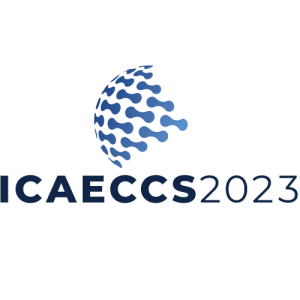
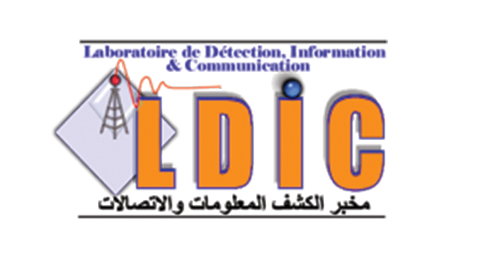

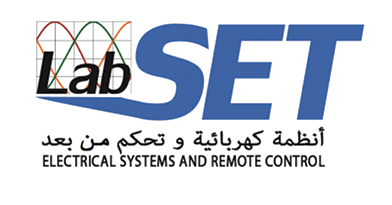
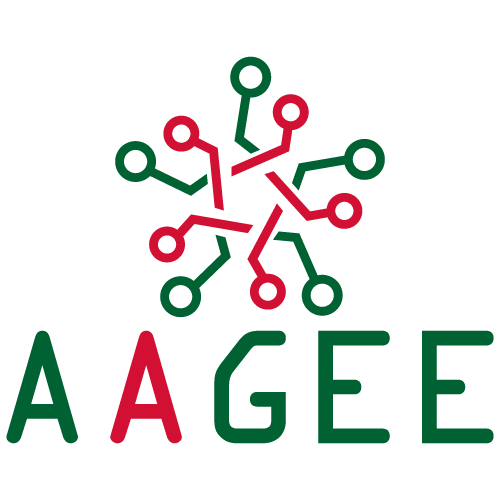
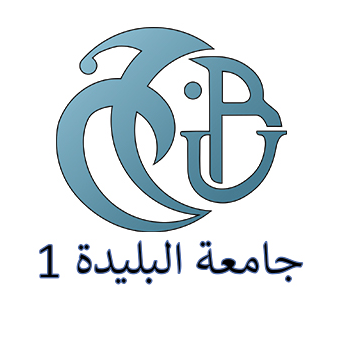
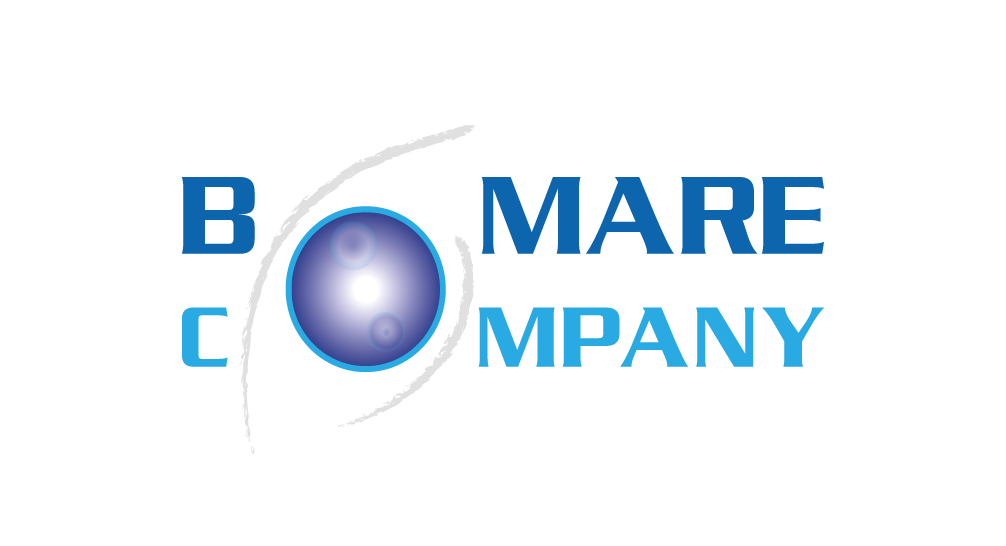
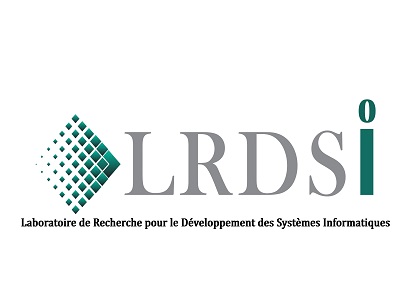
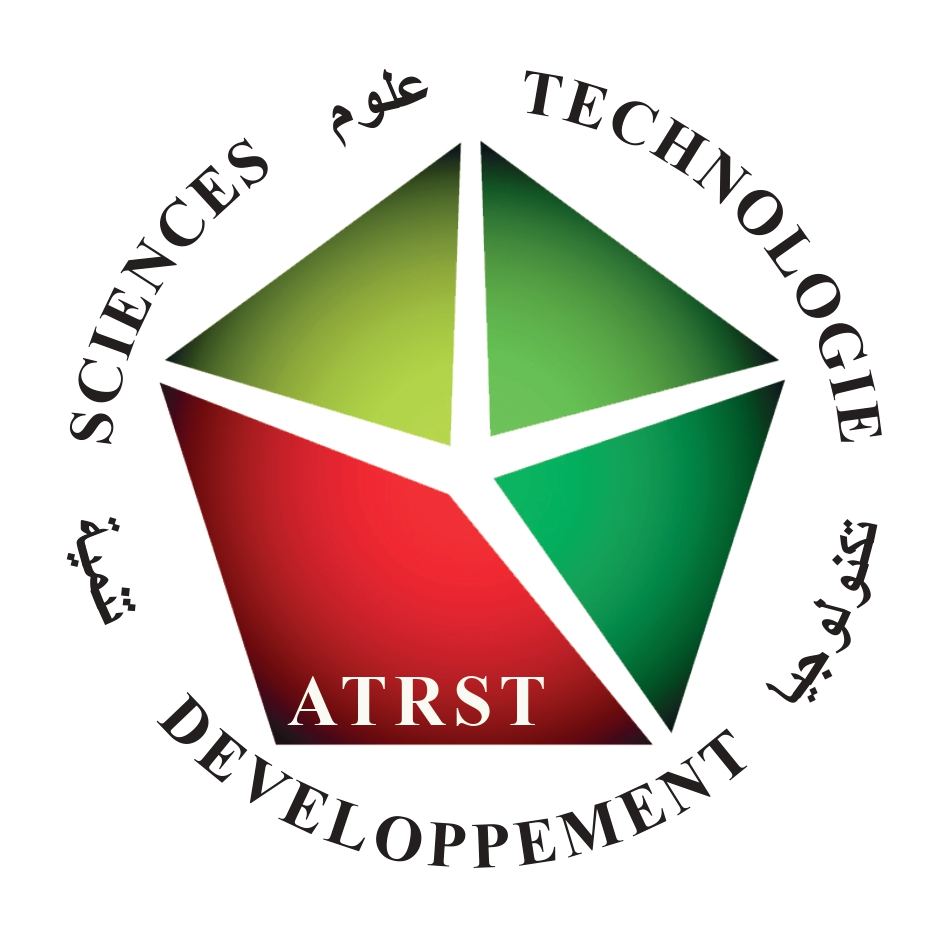
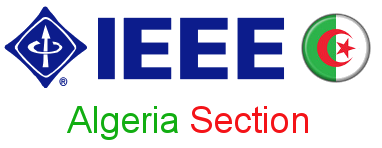
Get In Touch With ICAECCS 2023
Tel: +213 25 27 24 02
Email: icaeccs2023@univ-blida.dz
Adress: BP 270, Road of Soumaa, Blida, Algeria.
